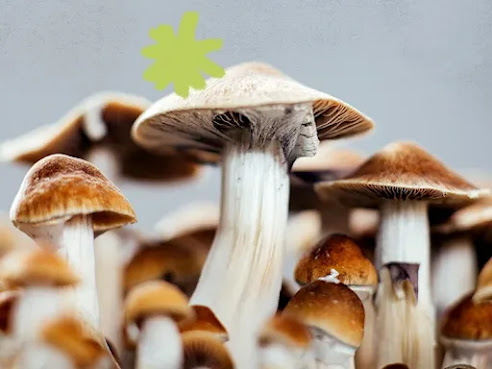Psilocybin's Impact On The Brain
At least 100 different varieties of mushrooms contain psilocybin, a naturally occurring tryptamine chemical. Psilocybin is typically administered orally, when it undergoes hepatic metabolism to create psilocin. Psilocin, not psilocybin, is the pharmacologically active ingredient in "magic mushrooms" that is thought to be in charge of the psychoactive effects.
Psilocin has a high affinity for serotonin (5-HT) receptors. It is a partial agonist of 5-HT2A receptors (40% activation efficacy) and binds to 5-HT2C, 5-HT1A, and 5-HT1B receptors in the thalamus and prefrontal cortex (PFC). Given that the thalamus is responsible for processing sensory input, it looks likely that the hallucinations associated with psilocybin usage are caused by the activation of receptors in this region of the brain. Meanwhile, serotonin receptors located all across the PFC are known to regulate a number of essential body activities, including as one's circadian rhythm, memory, social behaviour, and mood. It is thought that psilocybin can also alter these functions.
The 5-HT1A and 5-HT2A receptors in the PFC are also stimulated by psilocybin and other psychedelics like lysergic acid diethylamide (LSD), mescaline, and psilocybin, which has a long-term effect on serotonergic and dopaminergic function. The dopamine surge is thought to play a role in several of psilocybin's effects on mood, including euphoria and the frequently observed phenomena of depersonalization.
Additionally, the stimulation of postsynaptic 5-HT2A receptors in pyramidal neurons present in the deepest layers of the cortex causes extracellular glutamate levels in the PFC to increase. This glutamate release causes the N-methyl-D-aspartate (NMDA) and AMPA (amino-3-hydroxy-5-methyl-4-isoxazole propionic acid) receptors to become active. It is believed that brain-derived neurotrophic factor increases after these three receptors—the 5-HT2A, AMPA, and NMDA receptors—are activated. The improvement of memory, mental wellness, and cognitive performance are all strongly correlated with increased BDNF.
Psilocybin: Is It Safe?
Psilocybin abuse and serious adverse events are less frequent than with other main classes of medicines that are misused, and studies have shown no conclusive evidence that long-term psychedelic use is associated with an increased risk of mental illness or suicidal thoughts, intents, or attempts. Additionally, there is a very low chance of harm from psilocybin overdose. According to estimations, a lethal dose would need to be 1,000 times larger than an effective dose. However, psilocybin can have adverse effects include hypertension, tachycardia, nausea, vomiting, anxiety, vertigo, confusion, and increased sensitivity to light since it causes the pupils to enlarge.
It is important to understand that the subjective experience of using psychedelics, frequently referred to as a "trip," is very variable and influenced by the situation and the user's perspective. These two elements, referred to as "set and setting," can greatly affect someone's experience even when they have received the identical doses. A wonderful encounter might lead to epiphanies that can change a person's life and give them a new outlook on the world. When something awful occurs, it could result in uncomfortable ideas or hallucinations, which can subsequently lead to anxiety, disorientation, delirium, and, in the worst scenarios, temporary psychosis. Researchers have found that by providing patients with more preparation and ongoing interpersonal support, they can significantly lower the risk of negative experiences.
A vast selection of magic mushroom products are available to purchase on magicmushroomsstore.online. We provide everything from dried magic mushrooms to gummies, chocolates, and capsules with a microdose of mushrooms.


Comments
Post a Comment